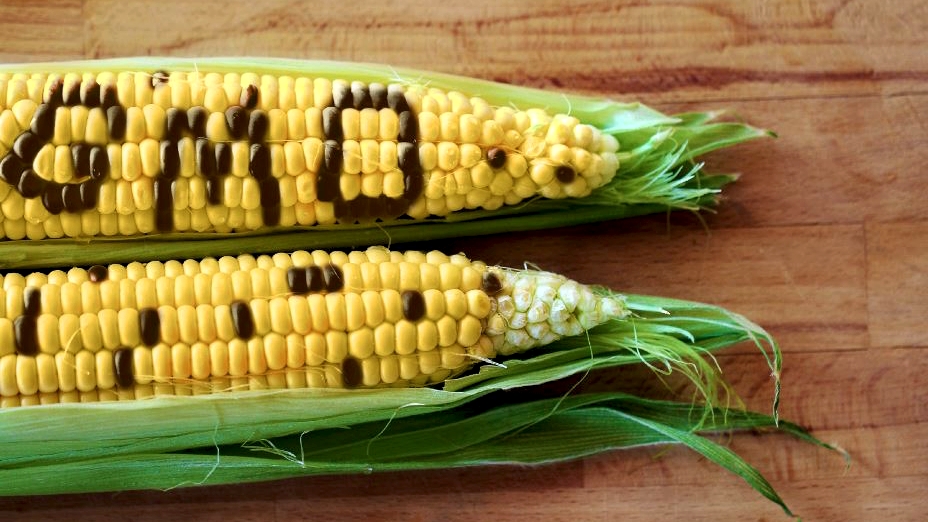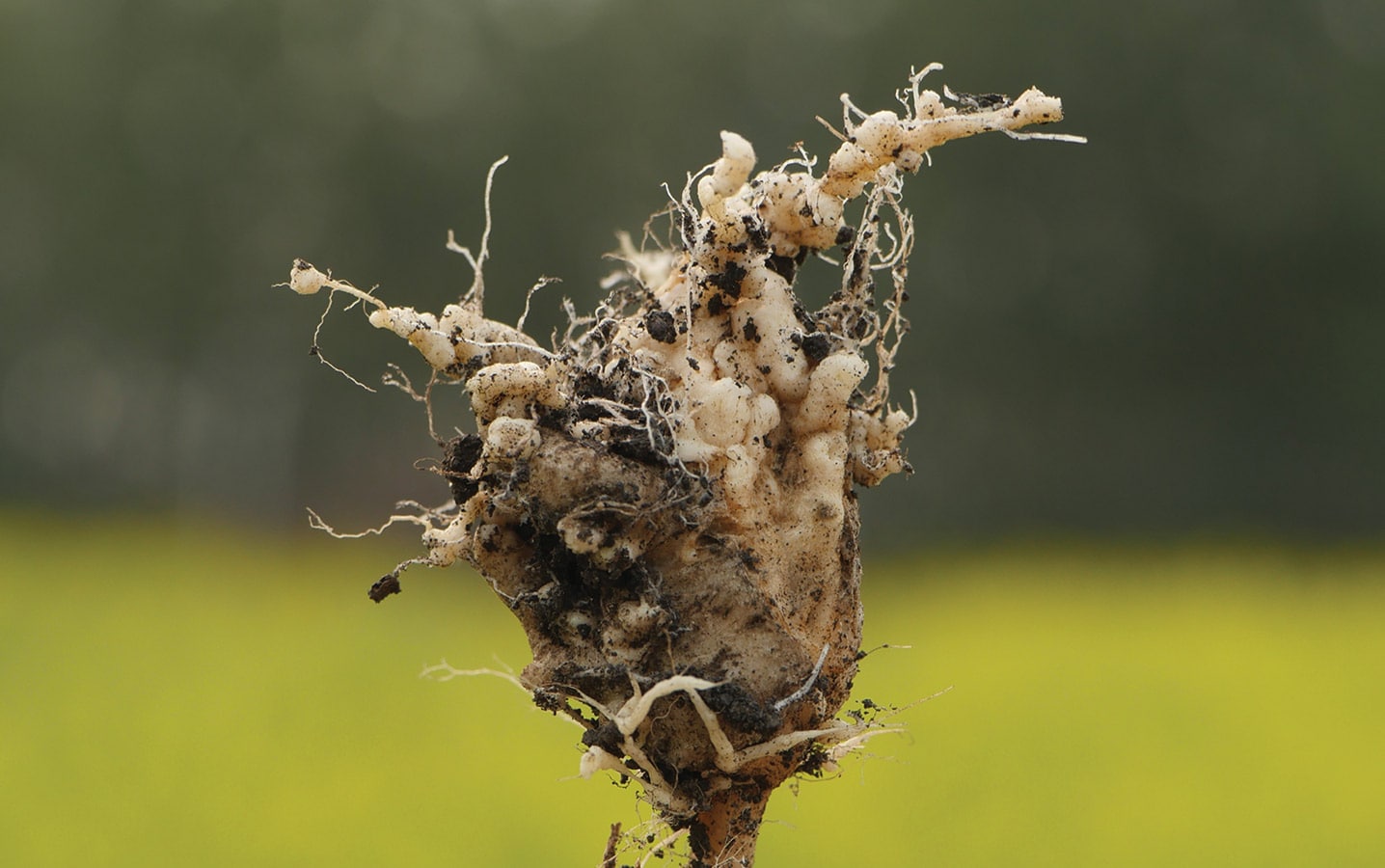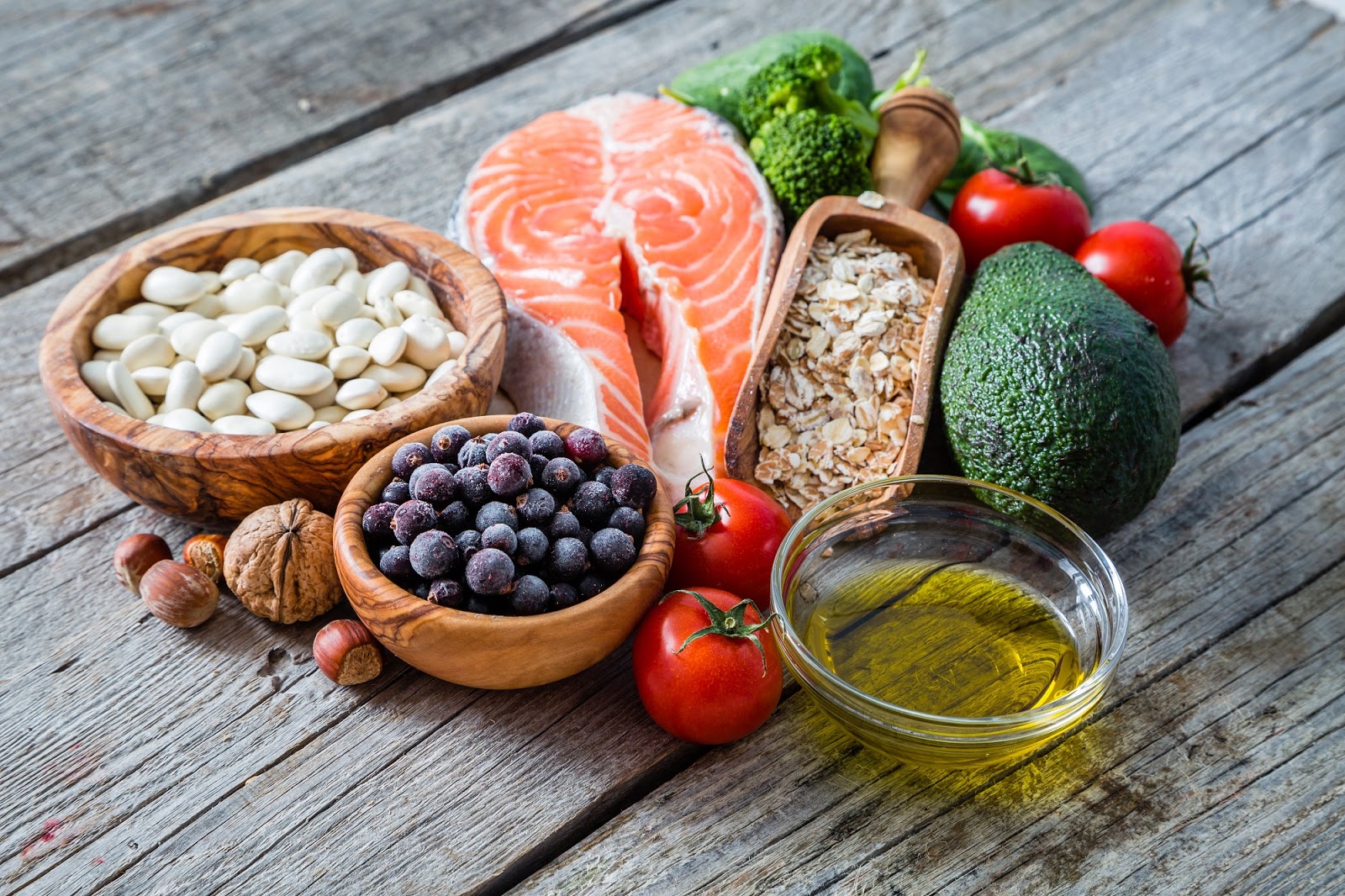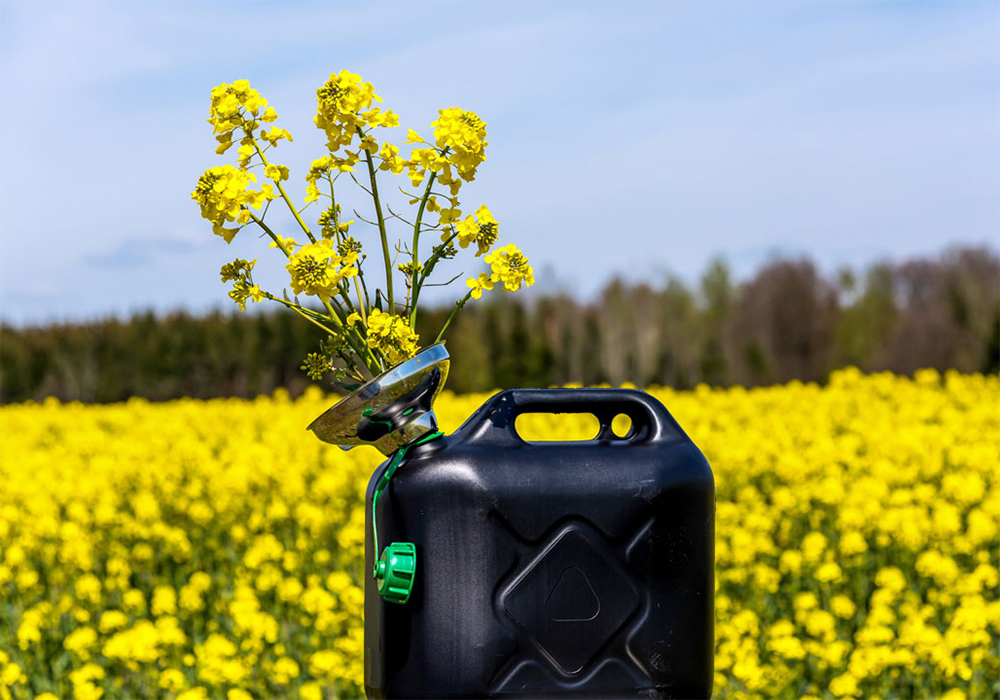Canola Quick Bytes
A supplement to U.S. Canola Digest
Capitol Hill
 The Congressional Budget Office (CBO) released its baseline funding guidance under current policy for the 2023 Farm Bill on Feb. 15. It provides lawmakers with an estimate of how much money they have to work with in drafting a new bill. Factors to estimate costs include projections of the price, yield and program acres for each commodity. The baseline projects farm bill spending between 2024 and 2033 to total $1.5 trillion. The Supplemental Nutrition Assistance Program (SNAP) accounts for $1.2 trillion or 82 percent of the total, while crop insurance is 7 percent and commodity and conservation programs are 4 percent each. The Congressional Budget Office (CBO) released its baseline funding guidance under current policy for the 2023 Farm Bill on Feb. 15. It provides lawmakers with an estimate of how much money they have to work with in drafting a new bill. Factors to estimate costs include projections of the price, yield and program acres for each commodity. The baseline projects farm bill spending between 2024 and 2033 to total $1.5 trillion. The Supplemental Nutrition Assistance Program (SNAP) accounts for $1.2 trillion or 82 percent of the total, while crop insurance is 7 percent and commodity and conservation programs are 4 percent each.
The Senate Agriculture Committee held hearings in February on farm bill title I and nutrition programs. Those testifying at the hearings were all senior U.S. Department of Agriculture (USDA) officials that head up the related offices, including the Farm Service Agency, Natural Resource Conservation Service and Risk Management Agency. Sen. Boozman (R-AR), Ranking Member of the Senate Agriculture Committee, cited the increasing risk of farming due to escalating production costs, which are estimated to hit a record $460 billion this year. The House Agriculture Committee held a field hearing in California, which was attended by Speaker of the House Kevin McCarthy, who will play a key role in determining if, when and how the House moves on the farm bill. House Agriculture Committee Chair Glenn Thompson intends to develop a bipartisan bill that can be enacted into law in 2023. The House and Senate are continuing with a series of hearings in March on various aspects of the bill.
The U.S. Canola Association (USCA) submitted comments to the Environmental Protection Agency (EPA) on its Endangered Species Act workplan update. The workplan is quite complex, covering numerous issues such as pesticide labeling, spray drift, run-off, seed treatments. It was posted to the Federal Register for comment right before Thanksgiving with a closing date of Jan. 30. Following complaints, the EPA gave a 15-day extension.
 The USCA is among several U.S. agricultural groups and stakeholders urging President Joe Biden and his administration to utilize enforcement tools under the United States-Mexico-Canada Agreement (USMCA) and request consultations with Mexico in order to provide a framework and timeline to address Mexico’s proposed prohibition on biotech corn. Despite multiple engagements by the U.S. government to resolve this situation through negotiations, Mexico recently released a new decree that still wrongly calls into question the safety of agricultural biotech products for human consumption by creating a non-science-based distinction of corn used for food, feed and industrial uses. For the USMCA to function properly, the U.S.-Mexico trade relationship must be underpinned by science-based, functioning laws and regulatory bodies. The USCA is among several U.S. agricultural groups and stakeholders urging President Joe Biden and his administration to utilize enforcement tools under the United States-Mexico-Canada Agreement (USMCA) and request consultations with Mexico in order to provide a framework and timeline to address Mexico’s proposed prohibition on biotech corn. Despite multiple engagements by the U.S. government to resolve this situation through negotiations, Mexico recently released a new decree that still wrongly calls into question the safety of agricultural biotech products for human consumption by creating a non-science-based distinction of corn used for food, feed and industrial uses. For the USMCA to function properly, the U.S.-Mexico trade relationship must be underpinned by science-based, functioning laws and regulatory bodies.
A growing number of startups want to help farmers by “generating credits for the carbon they store and selling them as offsets to anyone looking to reduce their emissions footprint.” Provisions enacted as part of the Omnibus Appropriations bill passed by Congress in December 2022 are intended to help growers adopt climate-friendly practices and encourage their participation in the carbon market. The provisions created a registration program at the USDA for those involved in carbon credit markets. This program will help connect landowners to private sector actors who can assist in implementing the protocols and monetizing the climate value of their sustainable practices. However, Giana Amador, co-founder of Carbon180, cautions the new legislation does not address the underlying science of soil carbon sequestration and farmers question if offsets are an appropriate tool for funding sequestration.
Agronomy
 A laboratory in Saskatoon, Saskatchewan, NRGene Canada, is using genomics and AI to identify canola genes that exhibit high resistance to clubroot disease. The project could save Canadian growers millions as they develop elite canola varieties with durable, multi-variant resistance. The company expects the project will be completed by 2025 and actively seeks Canadian and global partners to “ensure that varieties with these resistance genes are available to farmers and producers.” A laboratory in Saskatoon, Saskatchewan, NRGene Canada, is using genomics and AI to identify canola genes that exhibit high resistance to clubroot disease. The project could save Canadian growers millions as they develop elite canola varieties with durable, multi-variant resistance. The company expects the project will be completed by 2025 and actively seeks Canadian and global partners to “ensure that varieties with these resistance genes are available to farmers and producers.”
How can you achieve a uniform canola crop? Jason Casselman, agronomy specialist with the Canola Council of Canada, says that uniformity can be the top challenge for growers, but if achieved, it will greatly help to optimize yield. It includes monitoring for seeding speed and focusing on optimum plant stand, seed depth and fertilizer placement among other things.
Nutrition
 What is the Nordic diet and how can it improve your health? According to Forbes.com, it is a “plant-forward” eating pattern that incorporates ingredients native to Nordic countries, such as berries, root vegetables, whole grains and fish. It calls for limiting consumption of red and processed meats and focusing on fresh foods and healthy fats like canola oil. The latter is a staple oil for many Nordic diet followers because it’s low in saturated fat and a good source of omega-3 fat. What is the Nordic diet and how can it improve your health? According to Forbes.com, it is a “plant-forward” eating pattern that incorporates ingredients native to Nordic countries, such as berries, root vegetables, whole grains and fish. It calls for limiting consumption of red and processed meats and focusing on fresh foods and healthy fats like canola oil. The latter is a staple oil for many Nordic diet followers because it’s low in saturated fat and a good source of omega-3 fat.
Other Country News

Germany has proposed a ban on crop-based biofuels by 2030. This would be a huge setback for the Canadian canola industry, which exported 2.52 million tonnes of canola to the EU in 2020 for biofuel production. Although the Canadian canola market can survive without Germany, there is worry that if its proposal goes into effect, the rest of the EU might follow suit.
Saskatchewan’s annual canola exports to Mexico have exceeded $1 billion for the first time, thanks to increased sales of canola seed and oil. Canola seed made up nearly 55 percent of total exports to Mexico in 2022, valued at $557 million. The provincial government opened an international office in Mexico City in 2022, which has helped facilitate trade. Due to private sector investments in canola crushing plants in the province, canola exports to Mexico are expected to increase even more in 2023.
Researchers at the University of Saskatchewan have discovered how to convert canola and mustard meals into oil. However, these oils are thick and don’t blend easily with petroleum, but there is a way to treat them such that they can be used in biofuels.
The 2023 Canadian Crops Convention will be March 7-9 in Ottawa, Ontario – the first in-person since 2020! It will feature world-class speakers and networking with representatives across the Canadian canola and grain value chains. Registration has been extended until March 3 at 4 pm CST.
Latest Industry News
 “Danimer Scientific envisions an alternative path to reducing our world’s use of petroleum-based plastic – and U.S. canola producers are a key partner in bringing our vision to reality,” says Chief Technology Officer Phil Van Trump in the USCA Blog. The company’s Nodax® polyhydroxyalkanoate (PHA) bioplastic is created with a renewable fermentation process involving bacteria fed oils derived from canola and other plants. To produce this bioplastic, about 32.5 million pounds of canola will be required annually. Photo courtesy of Danimer. “Danimer Scientific envisions an alternative path to reducing our world’s use of petroleum-based plastic – and U.S. canola producers are a key partner in bringing our vision to reality,” says Chief Technology Officer Phil Van Trump in the USCA Blog. The company’s Nodax® polyhydroxyalkanoate (PHA) bioplastic is created with a renewable fermentation process involving bacteria fed oils derived from canola and other plants. To produce this bioplastic, about 32.5 million pounds of canola will be required annually. Photo courtesy of Danimer.
Corteva announced plans for the commercial launch of Optimum GLY, an advanced herbicide-tolerant trait technology for canola farmers. This technology will have an “enhanced weed control and a wider window of herbicide application,” according to the company. U.S. farmers will be able to access it through Pioneer brand seed varieties.
 North Dakota State University (NDSU) will offer a “Getting It Right with Canola Production” webinar on Thursday, March 9 from 8:30 AM to noon CST. The webinar will include presentations about canola cultivar considerations, plant establishment, fertilizer recommendations, insect management, clubroot, and biofuels canola among other things. Speakers will include several NDSU specialists, including agronomist Bryan Hanson and weed scientist Brian Jenks. North Dakota State University (NDSU) will offer a “Getting It Right with Canola Production” webinar on Thursday, March 9 from 8:30 AM to noon CST. The webinar will include presentations about canola cultivar considerations, plant establishment, fertilizer recommendations, insect management, clubroot, and biofuels canola among other things. Speakers will include several NDSU specialists, including agronomist Bryan Hanson and weed scientist Brian Jenks.
The Northern Canola Growers Association held officer elections at its recent board meeting. Re-elected were Dan Marquardt of Bottineau as president, Tim Mickelson of Rolla as vice president and Troy Romfo of Calvin as secretary/treasurer.
About the USCA
The USCA’s annual membership meeting will be in Washington, D.C., March 14-16. It will include federal policy updates on the farm bill and more, Capitol Hill visits and a reception for Congressional staff involved in agriculture.
Want to promote your products or services to canola producers and industry members? Visit our advertising pages to find specs, deadlines and rates to advertise in this monthly e-newsletter or on UScanola.com.
Get social with us on Instagram, LinkedIn, Facebook, Twitter and YouTube.
|
 The Congressional Budget Office (CBO) released its baseline funding guidance under current policy for the 2023 Farm Bill on Feb. 15. It provides lawmakers with an estimate of how much money they have to work with in drafting a new bill. Factors to estimate costs include projections of the price, yield and program acres for each commodity. The baseline projects farm bill spending between 2024 and 2033 to total $1.5 trillion. The Supplemental Nutrition Assistance Program (SNAP) accounts for $1.2 trillion or 82 percent of the total, while crop insurance is 7 percent and commodity and conservation programs are 4 percent each.
The Congressional Budget Office (CBO) released its baseline funding guidance under current policy for the 2023 Farm Bill on Feb. 15. It provides lawmakers with an estimate of how much money they have to work with in drafting a new bill. Factors to estimate costs include projections of the price, yield and program acres for each commodity. The baseline projects farm bill spending between 2024 and 2033 to total $1.5 trillion. The Supplemental Nutrition Assistance Program (SNAP) accounts for $1.2 trillion or 82 percent of the total, while crop insurance is 7 percent and commodity and conservation programs are 4 percent each. The USCA is among several U.S. agricultural groups and stakeholders urging President Joe Biden and his administration to utilize enforcement tools under the United States-Mexico-Canada Agreement (USMCA) and request consultations with Mexico in order to provide a framework and timeline to address Mexico’s proposed prohibition on biotech corn. Despite multiple engagements by the U.S. government to resolve this situation through negotiations, Mexico recently released a new decree that still wrongly calls into question the safety of agricultural biotech products for human consumption by creating a non-science-based distinction of corn used for food, feed and industrial uses. For the USMCA to function properly, the U.S.-Mexico trade relationship must be underpinned by science-based, functioning laws and regulatory bodies.
The USCA is among several U.S. agricultural groups and stakeholders urging President Joe Biden and his administration to utilize enforcement tools under the United States-Mexico-Canada Agreement (USMCA) and request consultations with Mexico in order to provide a framework and timeline to address Mexico’s proposed prohibition on biotech corn. Despite multiple engagements by the U.S. government to resolve this situation through negotiations, Mexico recently released a new decree that still wrongly calls into question the safety of agricultural biotech products for human consumption by creating a non-science-based distinction of corn used for food, feed and industrial uses. For the USMCA to function properly, the U.S.-Mexico trade relationship must be underpinned by science-based, functioning laws and regulatory bodies.
 A laboratory in Saskatoon, Saskatchewan,
A laboratory in Saskatoon, Saskatchewan,  What is the Nordic diet and how can it improve your health? According to
What is the Nordic diet and how can it improve your health? According to 
 “
“ North Dakota State University
North Dakota State University